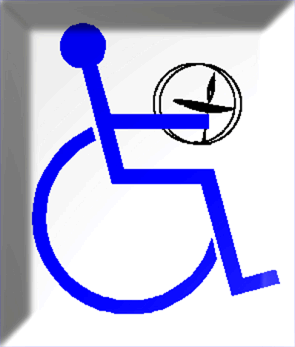


First Unitarian Church of Omaha
— online —
|
First Unitarian Church of Omaha — online — |
|
Worship Education Community The Flame Links |
What Shape is Your Calf? A Sermon by Rev. Nancy Roemheld At
October 29, 2006 This morning I invite you to consider with me some of the golden calves that we bow down to in our society - individually and en masse. And then, we will consider some other aspects of our lives, how we might aspire to more endurable goals. First, I would like to mention what is to me one of the obvious sacred cows of American culture: I’m admitting to a real bias here, based on three experiences: First, back in the ‘60s, our family attended a Methodist Church in Wisconsin where the minister was entranced by the Green Bay Packers. Every fall it would start. Every Sunday his sermons would be filled with football similes and metaphors, Packers stories, and many a reading from Vince Lombardi. To top it off, on Sundays when the game started early in the afternoon, he would race through his sermon so that he could get home in time for the kick-off on TV, leaving the congregation with their collective eyebrows raised, the visitors looking the most surprised. Second experience: When I told classmates in Chicago that I had accepted the call to be the minister of a UU congregation in Athens, Georgia, a few of them, the more scholarly ones, mentioned that I would get to meet an amazing professor at the University of Georgia who had written a “seminal” book on Process Theology. But most of those theological students said, “
My third sacred cow experience, much like the second one, started last spring when I told the folks in
My son, in
I hasten to add, that I have nothing against football games, per se, but I do wonder at the frantic activity, the obsession that seems to take over in some quarters at this time of year. Just imagine what could be done if all that energy were put to work to strive for peace in the world, or to stamp out some virulent disease. Just imagine. Let’s consider another, much more dangerous bovine idol, one that seems to affect the whole of our society and I think might have great appeal for Unitarian Universalists. Let us consider the golden calf of knowledge. Let us consider the difference between wisdom and knowledge. The book of Proverbs in the Hebrew Scriptures paints a most desirable picture of wisdom, making its possession among the greatest treasures available to humanity. Wisdom, meaning, understanding, discernment, perceptiveness, is not something we can memorize like the multiplication tables. It’s not really something you can be tested for. Wisdom comes to us, if it comes at all, and perhaps fleetingly, from our experience of life, from contemplation and thoughtfulness. The author of the Book of Proverbs believes that wisdom is a gift from God, and whether you believe it is from God or from your own inward vision, it is a gift to be open to. T.S. Eliot had this to say about the difference between wisdom and knowledge: “All our knowledge brings us closer to our ignorance…Where is the wisdom we have lost in knowledge? Where is the knowledge we have lost in information?” In our society today, it seems that a yearning after wisdom has been replaced by an unquenchable thirst for knowledge. But, there is a tragic difference between the quest for wisdom and the current addiction to knowledge. Knowledge, the stockpiling of information is often indiscriminate in its tastes and unconcerned with its use, and, the desire for pure knowledge, untempered by wisdom, can lead to folly. Steeped in knowledge, one can sit still, comfortably, doing nothing. The gift of wisdom is necessary to guide the use of knowledge, as well as the use of the material goods, time and energy we may reap as an offshoot of increased knowledge. Lust for knowledge for its own sake becomes a kind of idolatrous love, a love for an inanimate, self-reflective mountain of cold facts and figures, a kind of golden calf of information. “Everyone worships someone or something, you may be sure of that,” said Ralph Waldo Emerson. There are a lot of modern equivalents of the “calf in Horeb; that golden idol.” What shape is your calf? What idol do you worship? Your house? Your car? Your computer? Your job? Your church? Your self? Your body? Your knowledge? Looking over this list I can cross out quite a few of the items, but I must add my books and my air-conditioning on a hot summer evening. Back in 1906, William James wrote a letter to H. G. Wells where he said, in part, “the moral flabbiness born of the exclusive worship of ….success - that, with the cash interpretation put on the word ‘success’, this is our national disease.” I mention just one more of these bovines, one that I think we all may have something to do with, the Golden Calf of Technology. (Show of hands.) How many of you wear digital watches? How many of you were on a plane last week? How many of you have a calculator in your pocket or purse this morning? How many of you use or have fax machines? Home computers, phone answering machines? Most of us are at least functionally technologically literate. But, the important question is, are we technologically morally literate? When the idol of technology is worshipped, it’s easy to lose compassion for people. People became objects to be produced and used, images to be manipulated and marketed. If we no longer see persons, or subjects, only objects, only things, then we have allowed technology to undermine our humanity. In his book, The Whale and the Reactor, “myth-information” is a concept scholars like political scientist Langdon Winner are using to describe, “The almost religious conviction that a widespread adoption of computers and communication systems, along with easy access to electronic information will automatically produce a better world.” He goes on to say that “this is a peculiar form of enthusiasm that characterized social fashions of the latter decades of the 20th century.” Speaking of technology, although I certainly don’t worship it, I admit to an enthusiasm for space travel. For instance, I would love to go on a space shot to the moon. Would you? So now I invite you to put on your imagination caps - that’s something like a thinking cap - and picture this: (you may close your eyes if you want to) We, all of us in this room, have flown into outer space, and we are now in a space station and we are looking back down at the earth. We see how small it looks, blue- green, floating in the mist, and we can see that it is as scientist Lewis Thomas observed, the Earth resembles nothing so much as a single cell in a human body…and, from this great height, we gain a new perspective on our Earth and on ourselves as human beings…and we are changed…as all those who have traveled in space report to us that they are changed. From this vantage point, from this new perspective, looking down on our Earth, we see that the sacred cows and golden calves have disappeared, and we ask Nicci Giovanni’s question, “What then is important?” We know that it/is/not important to spend more time at the office…we know that we need to spend more time developing our personal relationships…we need to reach out more to explore our world and our own lives. In short, we see that it is important to be more open, more loving, more capable. We’re back down on earth now. Of course, it is not necessary for us to fly into outer space in order to gain a new perspective on our lives and on our world. We can do that right here, with our feet firmly planted on terra firma, in
Last month, our Jewish friends celebrated the High Holy Days. At Rosh Hashana and Yom Kippur, the Shofar, the ram’s horn is sounded. It is the special sound of the High Holy Days. It warns of the danger of doing nothing. It calls the faithful to battle their excuses and alibis. It is a summons to work together to make a better world. It announces that the time for change is now. In that spirit, may we reconsider what is important in our lives, may we aspire to goals that endure, and may we be blessed with wisdom and with gentleness in all of this. Amen.
|
|
First Unitarian Church of Omaha • 3114 Harney Street • Omaha, NE 68131 phone 402-345-3039 • fax 402-346-2662 |